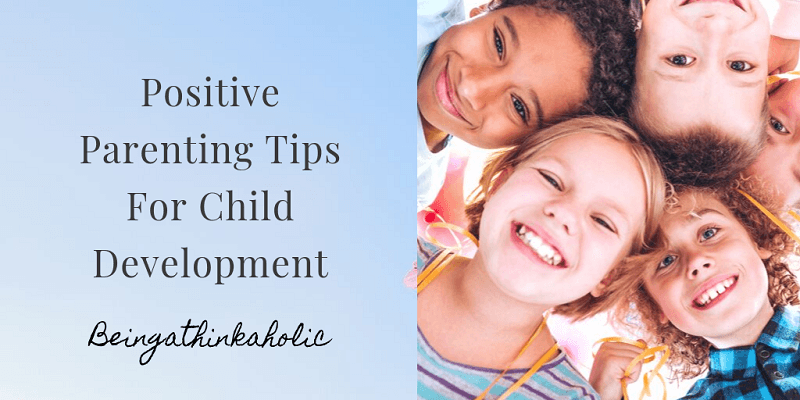Positive parenting tips are essential for fostering healthy child development and building a strong parent-child bond. Whether you’re wondering what are two positive parenting tips for middle childhood (6–8) or exploring what are two positive parenting tips for toddlers (2–3), adopting a supportive and nurturing approach can make a big difference.
Positive Parenting Tips:
From encouraging emotional intelligence to setting clear boundaries, these strategies work across all stages of development. In this guide, you’ll find expert advice on positive parenting tips for toddlers, positive parenting tips for infants, and the five positive parenting skills recommended for raising happy and healthy children. We’ll also touch on insights from CDC Positive Parenting Tips and share practical parenting tips for kids.
What Are Two Positive Parenting Tips for Middle Childhood (6–8 Years)?
Middle childhood is a critical time for fostering independence and emotional resilience. Here are two effective tips:
1. Encourage Problem-Solving and Decision-Making
Allow children to make simple decisions, like choosing their outfit or planning an activity. This helps them develop critical thinking and decision-making skills.
Example: “Would you like to start with your homework or chores today?”
2. Focus on Building Emotional Intelligence
Help your child identify and manage their emotions. Encourage them to express their feelings using words and teach empathy by discussing how others might feel in different situations.
Example: “I see that you’re upset because your game ended. Let’s talk about how we can handle those feelings.”
What Are Two Positive Parenting Tips for Toddlers (2–3 Years)?
Toddlers thrive on consistency and clear communication. Here are two essential tips:

1. Set Boundaries with Patience and Clarity
Use short, clear sentences to explain rules. Toddlers are learning to understand the concept of limits, so consistent enforcement is key.
Example: “We use our hands for playing, not hitting.”
2. Praise Positive Behavior Frequently
Positive reinforcement is an effective way to shape behavior. Praise specific actions to encourage repetition.
Example: “Thank you for putting your toys away! You’re such a great helper.”
Positive Parenting Tips for Toddlers:
Toddlers are naturally curious and eager to explore the world. Use these tips to nurture their growth:
- Establish Routines: Predictable schedules create a sense of security.
- Encourage Exploration: Provide a safe environment for them to explore.
- Model Good Behavior: Toddlers learn by imitating adults, so lead by example.
Positive Parenting Tips for Adolescents:
Parenting adolescents can be both rewarding and challenging as they navigate independence and identity. Here are some effective positive parenting tips to guide you:
- Encourage Open Communication
Create a safe environment where your teen feels comfortable sharing their thoughts and feelings. Listen without judgment, and respond with empathy. For example, instead of criticizing, ask, “How can I help you with this situation?” - Respect Their Growing Independence
Adolescents need opportunities to make decisions and learn from them. Allow them to take on responsibilities, such as managing their schedules or budgeting, while being available to provide guidance when needed. - Set Clear Expectations and Boundaries
Establish clear rules regarding behavior, curfews, and responsibilities. Be consistent but flexible, adjusting boundaries as your teen demonstrates responsibility. - Be a Role Model
Adolescents learn a lot from observing their parents. Model respect, honesty, and resilience to instill these values in your teen. - Support Their Interests
Encourage your adolescent to explore hobbies, sports, or academic interests. Showing enthusiasm for their passions boosts their confidence and fosters a sense of achievement.

By practicing these positive parenting tips, you can help your adolescent navigate this transformative phase while building a strong, trusting relationship.
Positive Parenting Tips for Healthy Child Development:
Parenting strategies should evolve as children grow. Positive parenting supports healthy development by promoting:
- Emotional Well-Being: Building trust through active listening and empathy.
- Cognitive Skills: Encouraging curiosity and problem-solving through play.
- Social Skills: Teaching respect and collaboration with others.
What Are the 5 Positive Parenting Skills?
Positive parenting incorporates these foundational skills:
- Consistency: Create routines and enforce rules consistently.
- Empathy: Understand your child’s perspective and emotions.
- Active Listening: Pay attention to their words and feelings.
- Positive Discipline: Use rewards and constructive feedback.
- Encouragement: Celebrate achievements, big or small.
CDC Positive Parenting Tips:
The CDC emphasizes building a nurturing relationship with your child through positive reinforcement and age-appropriate guidance. Learn more about their parenting resources.

Parenting Tips for Kids: Key Takeaways
Whether raising toddlers or older children, these principles apply across all ages:
- Be patient and adaptable to your child’s unique needs.
- Focus on building a strong foundation of trust and communication.
- Use age-specific strategies to guide their growth.
Conclusion:
Positive parenting tips are crucial for developing a child’s growth and development. Whether you’re looking for positive parenting tips for toddlers or exploring what are two positive parenting tips for middle childhood (6–8), adopting strategies like setting boundaries and reinforcing positive behavior can make a lasting impact.
These practices lay a strong foundation for your child’s emotional and social well-being. Incorporating the five positive parenting skills ensures a balanced approach, supporting healthy development for infants, toddlers, and kids. Following these actionable parenting tips can create a loving and supportive environment where your child thrives.
FAQS:
What are the 4 C’s of positive parenting?
The 4 C’s of positive parenting are: Communication, Consistency, Compassion, and Connection. These principles help create a nurturing environment where children feel valued and supported, building trust and resilience.
How can I be a more positive parent?
To become a more positive parent, focus on listening actively, setting clear expectations, using encouragement instead of punishment, and modeling the behavior you want to see. Stay patient and prioritize your child’s emotional needs to foster a healthy relationship.
What are the 5 importance of good parenting?
Good parenting builds emotional stability, enhances social skills, fosters academic success, encourages self-discipline, and strengthens parent-child relationships. It lays the foundation for a child’s overall well-being and future success.
External Resources:
CDC Positive Parenting Tips
A comprehensive guide from the CDC offering age-specific parenting tips and strategies.

Empowering parents to raise happy, confident kids. Get practical parenting tips and advice on our blog, Smart Parent Guides.
